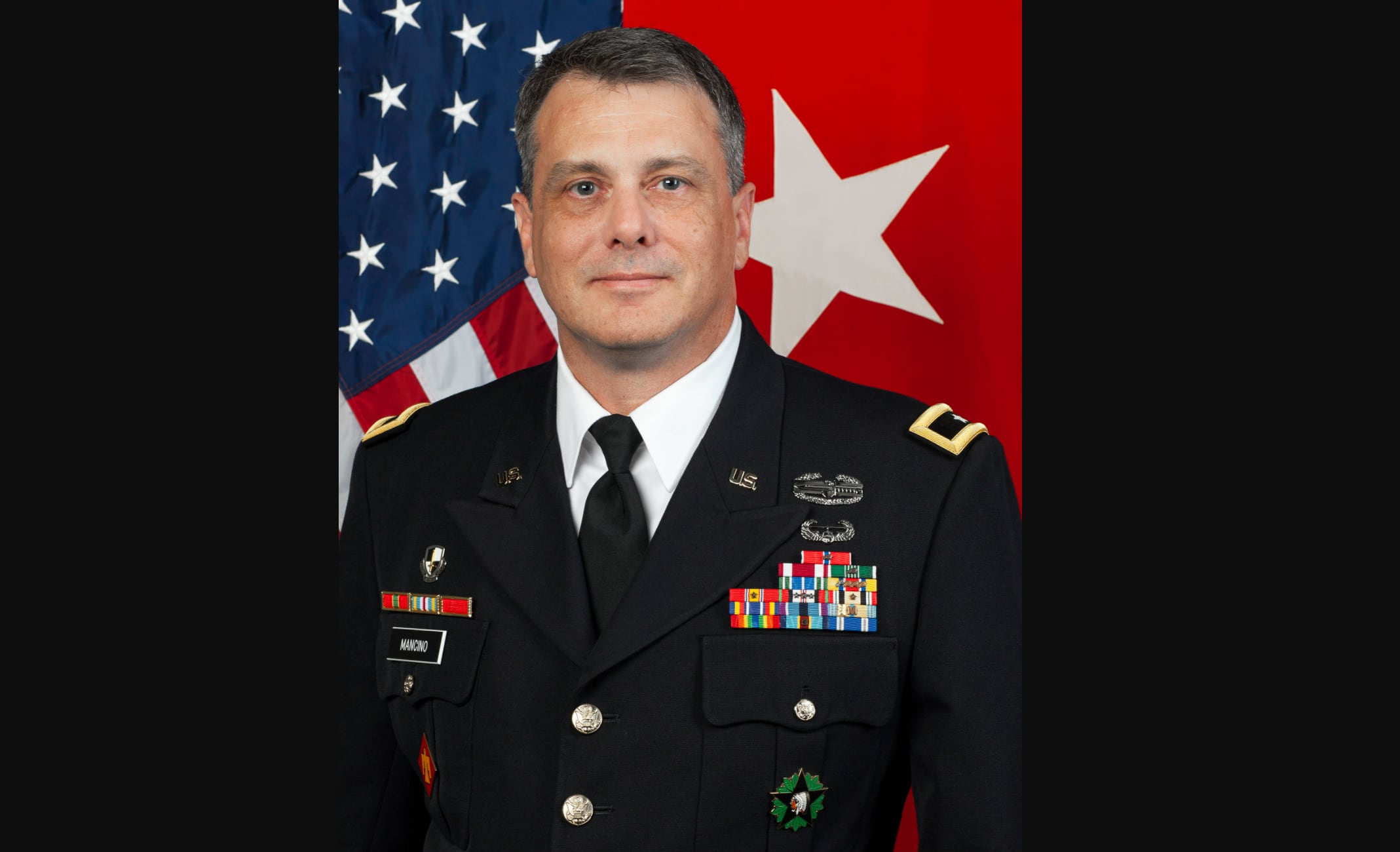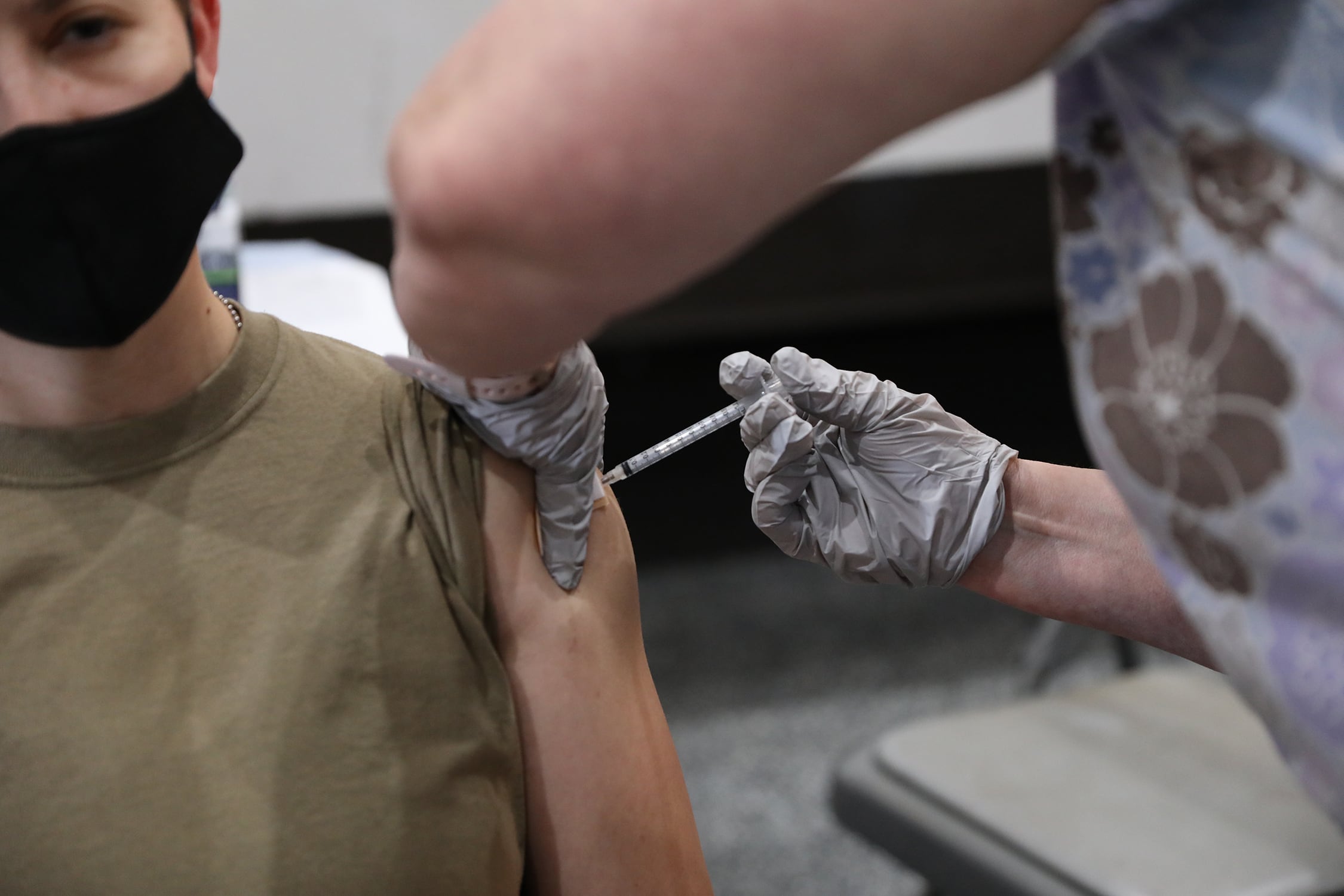Both the governor and adjutant general of Oklahoma have said they will not enforce the Pentagon’s COVID-19 vaccine mandate for troops under their authority. The question now is how much authority they actually have.
The Defense Department has the authority to mandate vaccines in support of medical readiness, a defense official told reporters on Wednesday, reiterating statements going back to Friday from Pentagon spokesman John Kirby.
“I don’t believe there’s any dispute that the secretary of defense and the secretaries of military departments have the ability to establish medical readiness requirements that apply to all of the active and reserve components, including the National Guard,” the official said. “Whether or not a governor forces that under his or her own authority is another matter, but [it] in no way relieves members of the National Guard from compliance with medical readiness requirements established by the secretary of defense and the secretaries of the military departments.”
Defense Secretary Lloyd Austin in August announced that COVID-19 vaccination would be mandatory for troops. The services have since set their own deadlines, giving reserve components at least 30 extra days.
The issue in Oklahoma comes down not to whether its Guardsmen will be allowed to go without a vaccine ― they won’t ― but who will hold them accountable for violating the mandate and what their military careers will look like if they do.
RELATED

National Guard forces are under the command of state governors unless under a federal activation, including during some emergency relief mobilizations, deployments abroad, required annual training and professional military education needed to earn promotions.
It also includes federally funded monthly drill weekends, during which Guardsmen earn days toward their total time in service to be eligible for federal veterans benefits.
So while Oklahoma Guardsmen might be able to activate on state orders, or participate in state training, they will be not eligible for the most basic commitments of their jobs in uniform, and will be subject to repercussions handed down by the Army or Air Force.
Oklahoma Gov. Kevin Stitt said in a Nov. 2 letter that 10% of the state’s troops had refused the vaccine and called the DoD’s mandate “irresponsible.”
“I’m not going to speculate as to what actions the secretary of defense or the secretary of the military departments might take as the deadlines approach,” the defense official said.
RELATED

National Guard units are unique in that they are a hybrid of a state militia and federal troops. So an Oklahoma National Guard soldier who isn’t vaccinated by the June 30 deadline can still show up for drill, for example, but they wouldn’t be entitled to pay for it.
The question becomes, then, how the Pentagon or the services will hold troops and their chains of command accountable for eschewing the mandate.
“I’m not going to speculate on how any actions might actually be taken by the department in the future,” the defense official added.
One possibility is that the Army and Air Force will have to do their own audit of their Guard troops. In the active duty force, regulations have gone out calling on leadership to begin involuntary separation proceedings for troops who have not met mandate deadlines and have not applied for or secured an exemption.
In Oklahoma, where the top general has said he won’t enforce a mandate, the services may not be able to rely on those lower-level leaders to initiate separations.
In that case, they would have to reach down to get a list of troops who will be separated, and then possibly levy consequences on any leaders who did not enforce the mandate.
Defense Secretary Austin has not spoken to the governor or adjutant general, Kirby told reporters Tuesday.
Meghann Myers is the Pentagon bureau chief at Military Times. She covers operations, policy, personnel, leadership and other issues affecting service members.
